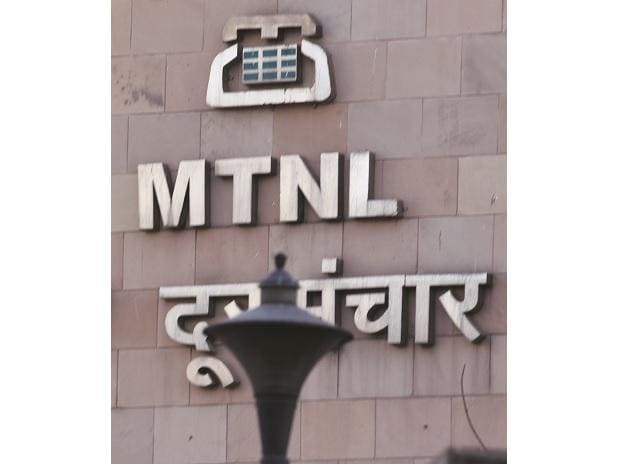VRS for staff may be only option for loss-making MTNL if it shuts: Execs
Establishing a company-wide voluntary retirement scheme (VRS) may be the only option available to government telecom PSU Mahanagar Telephone Nigam Limited (MTNL) and its 3,574 employees in the event of the company’s closure and delisting, officials say.
Established in the year 1986, the Public Sector Undertaking under the Ministry of Communications is mandated to provide telephone services in the Delhi and Mumbai circuits. The company was profitable till 2008-09.
Since then, it has incurred losses every year except for 2013-14, when it posted a profit of Rs. 7,825 crore mainly due to write-offs of provisions on account of pension liabilities and spectrum amortization costs.
The government, in October 2019, approved a Rs 68,751 crore revival package for the loss-making telecom sector PSUs and MTNL.
The package envisages merging entities and raising funds by issuing sovereign-backed bonds.
But MTNL’s huge debt, pegged at Rs. 23,500 crore in FY23, has put a stop to a merger with its relatively stable sister company BSNL. Meanwhile, MTNL is yet to raise 6,661 crore sovereign bonds, after seeking approval from its board of directors just last week.
Media reports on Tuesday said the government may shut down MTNL and switch its operations to BSNL.
Staff question
One of the conditions for the government’s approval of a revival package for the ailing unit was that staff unions accept the voluntary retirement scheme (VRS).
Days later, MTNL launched the VRS scheme in November 2019 for all regular and permanent employees aged 50 and over on January 31, 2020.
“As many as 15,000 of its 22,000 total employees were eligible for the program. The vast majority of them, or 14,378 employees, opted out. This shows little confidence that employees have recovered at PSU,” a communications sector (DoT) official said.
As of February 2023, MTNL had 3,574 employees, all of whom were based in Delhi or Mumbai.
Officials from DoT and BSNL said that a similar VRS system might be planned should MTNL cease to exist in the future. A senior official from BSNL said, “Some staff, mostly technical and maintenance, will need to be retained. They may be transferred to BSNL. However, the majority of staff could be given the option of VRS.”
Approximately 1,900 MTNL employees are over the age of 50. The average age of the staff is 46 years.
Up to 46 months’ total compensation was expected to be paid ex gratia as part of the VRS. MTNL has also separated the scheme into three groups of employees – joint service selectors, proportional selectors and MTNL appointed staff.
Joint service selectors were to receive a tip plus an acceptable pension of up to 125 percent of their salary, while pro-rata selectors were to receive the same benefits as joint service selectors who had completed the same period of service and the remainder. Employees hired at MTNL were tipped to 100 percent of the salary.
There is no other way
Other than VRS, demotion will be the only option available to most employees, who are unlikely to be absorbed into BSNL.
Combined with the latest VRS and other measures, the total number of MTNL employees has decreased to just 4,430 as of December 2019.
This was expected to bring annual salary expenditure down to Rs 500 crore from Rs 2,272 crore earlier. The employee cost footprint on revenue was also expected to fall to 25 percent, from 85 percent earlier.
But officials said losses continued to pile up as operating revenue fell. Official data showed that MTNL’s fixed-line customer base fell from 3.54 million in November 2008 to 2.31 million in March.
Shutting down the entity may be the only way forward because the government has said several times that there are no plans to privatize the company. In April and July 2022, the Ministry of Communications informed Parliament in a written response that the government had no plans to divest in BSNL or MTNL.
2019-20: ₹3,693 crore
2020-21: Rs.2,554 crore
2021-22: Rs. 2,617 crore
2022-23: Rs. 2,910 crore
